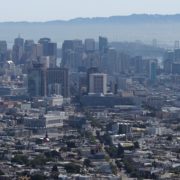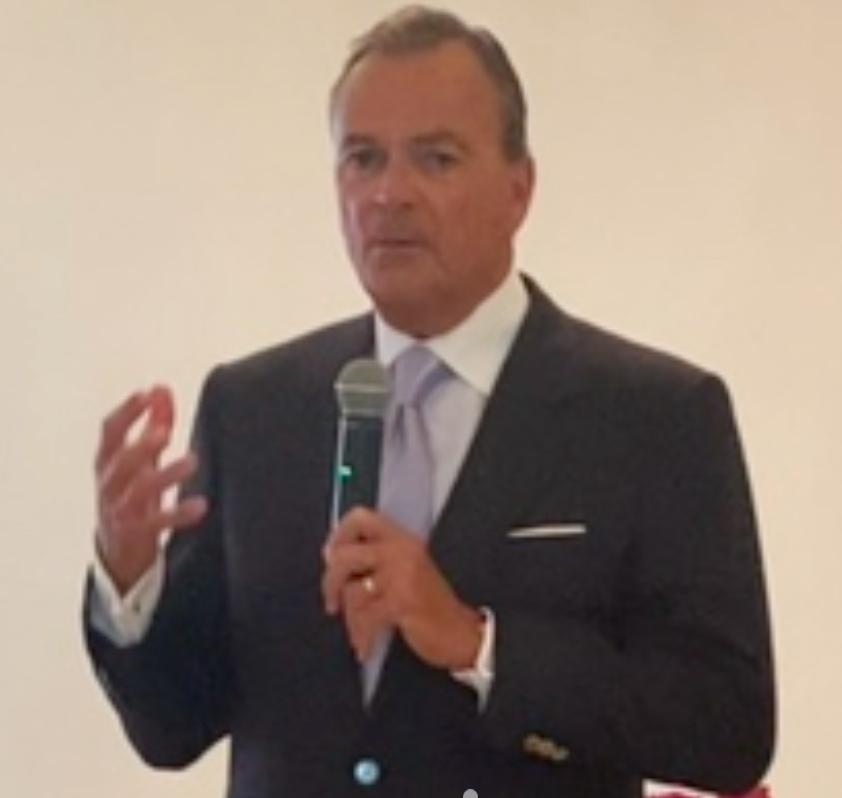DA’s office forms economic crimes against workers unit
SAN FRANCISCO – Mayor London N. Breed and Treasurer José Cisneros on Tuesday, April 21 announced new measures to support San Francisco businesses during the COVID-19 pandemic. These efforts include deferring collection of the Business Registration Fee for four months and further deferring collection of Unified License Fees. Unified License Fees include charges from City departments to restaurants and food businesses, bars, convenience stores, many small retailers, hotels, tour operators, and other businesses. The previously announced deferral on business taxes for small businesses and additional supports for small businesses remain in place.
“Many businesses in San Francisco are struggling with a loss of revenue due to the COVID-19 pandemic and we must do everything we can to support them and their employees during this challenging time,” said Mayor Breed. “Deferring the collection of these fees provides some immediate financial relief for business as we continue to try to help them stay afloat and take care of their employees.”
“Our business community is being hit hard financially, and we must continue to take aggressive steps to support them and their employees though this crisis,” said Treasurer José Cisneros. “I’m proud of our citywide efforts to lessen the burdens on taxpayers, and I will continue to work to assist San Francisco businesses through this difficult time.”
“We must especially support our small businesses in every way possible,” said Supervisor Gordon Mar. “Essential neighborhood businesses and their frontline employees are keeping our communities running, and even merchants forced to shut down are dedicating themselves in creative ways to strengthen our neighborhoods.”
The measures Mayor Breed and Treasurer Cisneros announced today are the following:
Deferral of Business Registration Fee
The City will extend the 2020 Business Registration Fee deadline by four months to September 30, 2020. At the end of April, Business Registration Renewal instructions are mailed to businesses to renew their registration to maintain their ability to do business in San Francisco for the upcoming fiscal year. This year, the registration renewal fee is now due by September 30, 2020 instead of by May 31, 2020. Mayor Breed will be working with Treasurer Cisneros to notify businesses that the Business Registration Fee can be deferred. This will lead to $49 million in deferrals for 89,000 businesses.
Deferral of Business Licensing Fees
The City will provide tax relief for businesses by further delaying the City’s collection of the unified license fees until September 30, 2020. The unified license fees include, but are not limited to, charges to restaurants and food businesses, bars, convenience stores, many small retailers, hotels, and tour operators, from departments such as the Department of Public Health, Entertainment Commission, Fire Department, and Police Department. This will lead to $14 million in deferrals impacting 11,000 payees. In March, Mayor Breed announced an initial three-month delay for the collection of the fee.
Mayor Breed’s other initiatives to support small business include:
• Business tax deferrals for small businesses with up to $10 million in gross receipts. Mayor Breed and Treasurer Cisneros notified small businesses that their first quarter businesses taxes can be deferred until February 2021. No interest payments, fees, or fines will accrue as a result of the deferral.
• $10 million Workers and Families First Paid Sick Leave Program, providing up to 40 hours of paid sick leave per employee;
• $9 million Emergency Loan Fund providing up to $50,000 in zero interest loans for individual small businesses;
• $2 million Resiliency Grants providing up to $10,000 grants to over 200 small businesses;
• $2.5 million in support for working artists and arts and cultural organizations financially impacted by COVID-19;
• Supporting nonprofits funded by the City so workers don’t lose their incomes;
• Issuing a Moratorium on Commercial Evictions for small and medium sized businesses that can’t afford to pay rent;
• Advocating for additional resources for small business and workers through the federal CARES Act;
• Establishing City Philanthropic www.Give2SF.org Fund, where donations will support housing stabilization, food security, and financial security for workers and small businesses impacted by coronavirus;
• Launching a one stop City website for businesses and workers seeking resources, contacts, and updates during the COVID-19 emergency: www.oewd.org/covid19.
Earlier this month, Mayor Breed and Board of Supervisors President Norman Yee announced the creation of a COVID-19 Economic Recovery Task Force. The Task Force is charged with guiding the City’s efforts to sustain and recover local businesses and employment, and mitigate the economic hardships that are already affecting the most vulnerable San Franciscans. Their work will support San Francisco organizations and individuals throughout the remainder of the Shelter-in-Place Order, and will lay the groundwork for economic recovery once the City has made meaningful progress containing COVID-19.
Meanwhile, San Francisco District Attorney Chesa Boudin announced the launch of a new Economic Crimes Against Workers Unit within the DA’s office to investigate and prosecute crimes committed by employers against workers. The innovative unit, one of the first of its kind in the nation, will be led by Assistant District Attorney and Labor Liaison Scott Stillman, who has dedicated his legal career to protecting workers’ rights.
“I am proud to establish this new unit, which will safeguard the rights of some of the most vulnerable people in our society: workers who are being exploited by their employers,” said DA Boudin. “I promised during my campaign that we would create this unit for those workers who far too frequently feel powerless in the justice system – and with a lengthy track record of fighting for employment justice, ADA Stillman is the perfect lawyer to protect their rights.”
The Economic Crimes Against Workers Unit will focus on crimes such as wage theft, labor trafficking, criminal immigration-related workplace retaliation, and enforcement of California’s Unfair Competition Laws. It will seek to partner with state and local civil enforcement agencies to advance worker protections.
ADA Scott Stillman has spent his legal career fighting for justice on behalf of workers. He comes to the DA’s Office after ten years at McGuinn, Hillsman & Palefsky, where he was a partner. There, he represented workers in a wide variety of cases, including wage and hour disputes, discrimination, retaliation, sexual harassment, and wrongful termination cases. ADA Stillman also served as a member of the Diversity Committees of the California Employment Lawyers Association and the Executive Committee of the Labor and Employment Law Section of the California Lawyers Association. ADA Stillman earned his J.D. from Northeastern University School of Law and his B.A. from Stanford University.
“Throughout my career, I have seen the tremendous and too-often unchecked power that employers can hold over their workers,” said ADA Stillman. “I am eager to harness the resources of the DA’s Office to ensure that employees know their legal rights and that corporations are held accountable when those rights are violated.” He plans to collaborate with labor unions and community-based groups to help achieve these goals.
DA Boudin’s creation of the unit was heralded by labor leaders. “We applaud DA Boudin’s leadership and commitment to using the power of the prosecutor’s office to enforce laws that protect workers’ rights,” said Rudy Gonzalez, Executive Director of the San Francisco Labor Council, AFL-CIO, which represents over 100,000 union members and their families. “We are looking forward to working together with ADA Stillman and the DA’s office to advance justice for workers and the labor community.”






